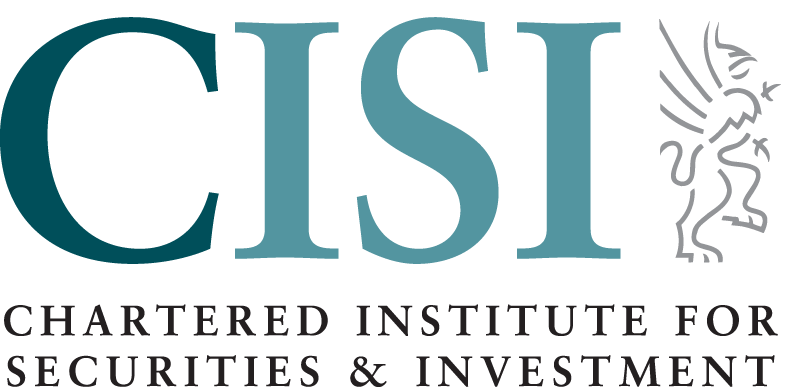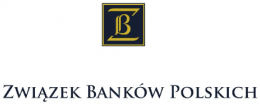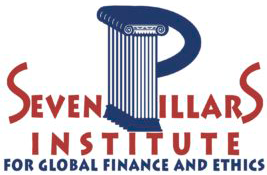Supporters
as of 10th edition
Supporters make contributions in kind or less than 10’000 euros. They are acknowledged by providing a link to their institution on our website. Supporting the Prize can be done in various ways:
- Partner with us to disseminate information about the Prize and encourage the global attraction of its ideals.
- Contribute to the organisation, for example by acting as host institution for the Award Ceremony of the Prize or by organising a workshop on the topic of ethics in finance to promote the Prize.
- Work with the Prize to develop the networks and create incubator projects for innovative ideas for ethics in finance.

The Association of Certified Chartered Accountants (ACCA Global) is the world-wide body for accreditation of professional accountants. ACCA Global recognizes the importance of the Ethics in Finance Robin Cosgrove Prize to promoting greater awareness of ethics and integrity, especially among its younger members and trainees.

The Chartered Institute for Securities & Investment (CISI) is a global professional body that sets the highest standards of professional excellence in a broad range of financial services disciplines. For over 30 years, we have been championing integrity, raising individual standards of knowledge, skills and behaviour in the UK and internationally, and working to enhance public trust and confidence in financial services ever since we emerged from the London Stock Exchange in 1992.

Founded in Brussels in 2001, FEBEA (European Federation of Ethical and Alternative Banks and Financiers) brings together financial institutions from 17 European countries with the aim of developing ethical and social finance in Europe. Together, these innovative and pioneering institutions work, each in its own country, to disseminate the importance and urgency of the development of ethical and solidarity-based financial models in the European economic and political area.

European Financial Planning Association (EFPA) is the leading professional standards setting body for financial advisors and planners in Europe, building public confidence and trust. EFPA influences the market behaviour of its certificate holders guiding these professionals in Knowledge, Skills, Lifelong learning, Behaviour and Ethics. EFPA has a code of professional ethics with which certificate holders must comply.

The Global Alliance for Banking on Values (GABV) is an international network of frontrunner organisations and leaders in the banking industry that use finance to serve people and the planet. Our collective goal is to make the banking system more transparent and support positive economic, social and environmental change.

Globethics is an international non-governmental organisation. Globethics seeks to be inclusive of diverse cultural, religious, philosophical, and humanist ethical wisdoms, and to be the bridge between the different world views on ethical issues.

Founded in August 2018, the Hoffmann Global Institute for Business and Society is at the forefront of aligning INSEAD with the UN Sustainable Development Goals, or SDGs. In order to achieve this, we support research on business and society, inspire and equip future leaders, engage with our global alumni community and external partners to expand our impact, and aspire to make INSEAD a sustainable school that acts and leads by example. The Hoffmann Institute is named in recognition of André and Rosalie Hoffmann for their foundational gift.

The International Ethics Standards Board for Accountants (IESBA) sets high-quality, international ethics (including independence) standards as a cornerstone to ethical behavior in business and organizations and to public trust in financial and non-financial information that is fundamental to the proper functioning and sustainability of organizations, financial markets, and economies worldwide.

International Federation of Accountants (IFAC) is the global organization for the accountancy profession, comprising 180 member and associate organizations in 135 jurisdictions, representing millions of professional accountants. With our member organizations, we serve the public interest by enhancing the relevance, reputation, and value of the global accountancy profession.

The Polish Bankers Association is a self-government organization of banks, established in 1991, founded on the Chambers of Commerce Charter. Membership in the ZBP is voluntary and open for all banks created under the Polish law as well as for foreign credit institutions branches operating in the Republic of Poland. Within the Association there are numerous consultative committees, councils, task forces and other bodies. Their objective is to develop and issue opinions and positions in matters determining the correct operation of the Polish banking system.

The Principles for Responsible Management Education (PRME) is a United Nations-supported initiative founded in 2007. As a platform to raise the profile of sustainability in schools around the world, PRME equips today’s business students with the understanding and ability to deliver change tomorrow. PRME’s vision is to realize the Sustainable Development Goals through responsible management education.

Seven Pillars Institute for Global Finance and Ethics (SPI) is the world’s only independent, nonprofit, non-partisan, think tank for research, education, and promotion of financial ethics. Our financial ethics organization provides research and resources on ethics in finance. The mission of the Institute is to highlight and analyze issues of moral philosophy in finance with a view to enhancing practice and policy.

Swissnex is the Swiss global network connecting Switzerland and the world in education, research and innovation. Our mission is to support our partner’s outreach and active engagement in the international exchange of knowledge, ideas and talent.

The UN SDG Action Campaign supports meaningful civic participation in the UN SDG-related processes for a more inclusive and accountable multilateral system. This includes convening dialogues and consultations on policy proposals in lead up to processes such as the Summit of the Future, Second World Summit for Social Development and the Fourth International Conference on Financing for Development.

Universidad Popular Autónoma del Estado de Puebla (UPAEP) is an institution committed to the search and dissemination of truth, aligned with Christian humanism. UPAEP is and always has been committed to the formation of professionals who are agents for change and transformation in order to achieve the Common Good.

The University of Tübingen’s Weltethos-Institut works in research and teaching, dealing primarily with the issues of economic globalisation and business ethics and with the goal of anchoring the Global Ethic idea long-term in the economy. The institute’s work is interdisciplinary and its educational offerings are used by students in all areas of study.
